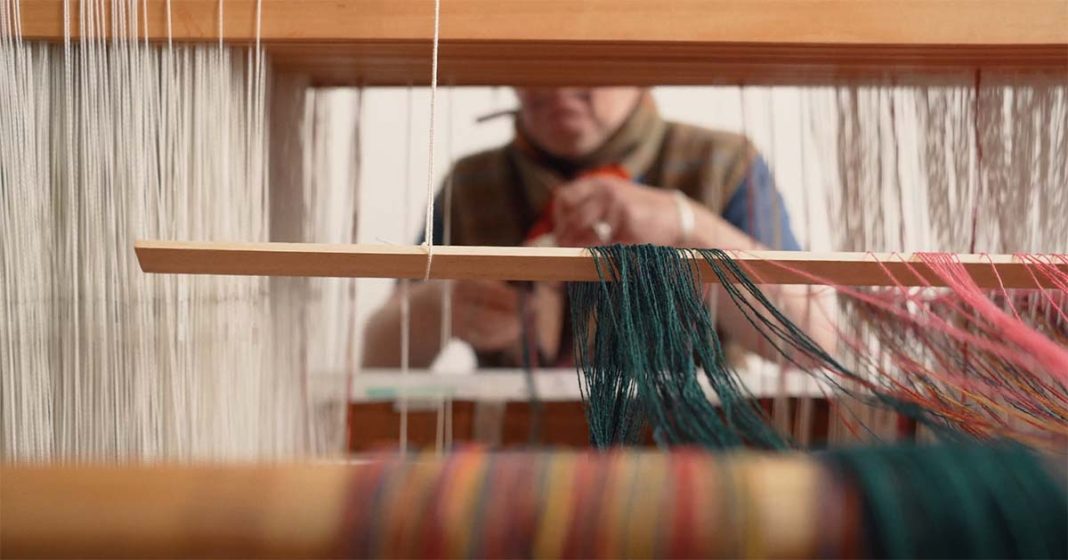Enjoy a look inside the studio of James Donald, an Edinburgh-based weaver, textile designer and founder of wool fashion brand PickOne
In the below mini documentary (filmed by Edinburgh-based videographers Cro + Kow), James Donald, who is a weaver and designer, shows the handweaving process as he transforms Shetland wool into colourful knitwear that is as kind to Scottish wildlife as it is to the eye.
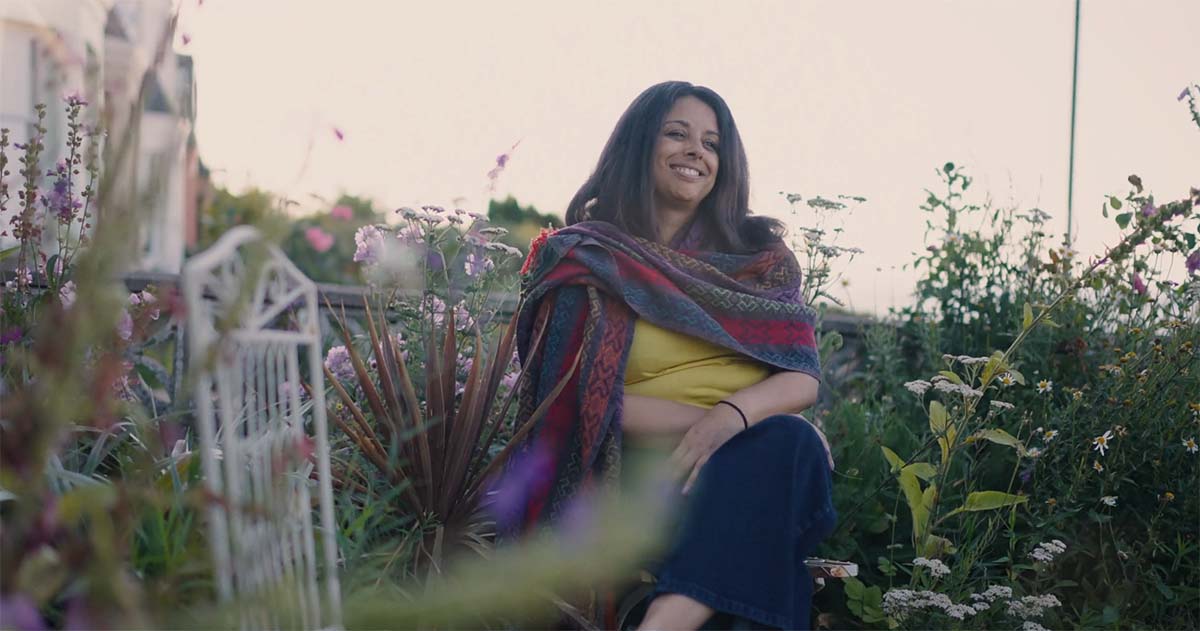
Here, the weaver discusses the power of handcrafted clothes – especially in an era of mass consumerism.
“PickOne is a creative company owned and operated by myself,” James says. “Currently based in Edinburgh, I trained at Duncan of Jordanstone College of Art & Design in Dundee, refined my craft as a weaver and set up PickOne in 1997.”
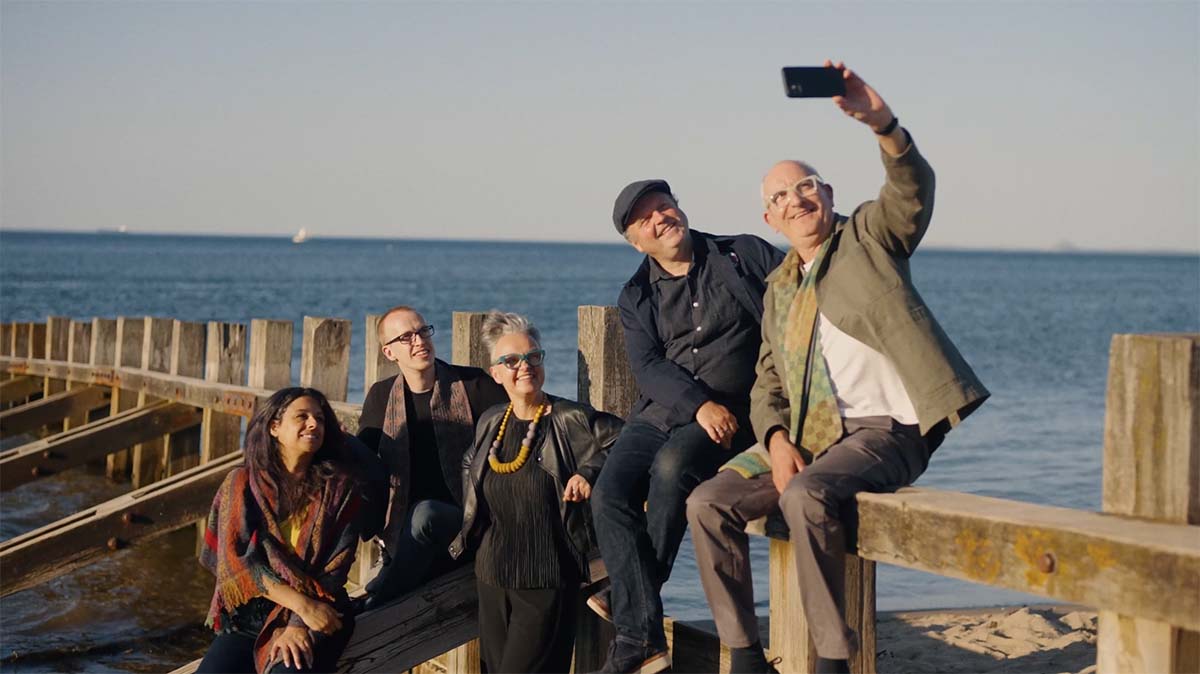
James is primarily a weaver, using materials sourced exclusively from Scotland – including lamb’s wool, Shetland wool and other locally-sourced fibres – to create scarves, snoods and Dilly bags.
“The Dilly bags are made from handwoven cheviot wool with an ombre warp and lined in a very sturdy denim fabric. These multifunctional pieces were designed to carry all your essentials power packs, leads and plugs, etc. when traveling, but with a bit of thought could be utilised for all sorts of practical uses.”
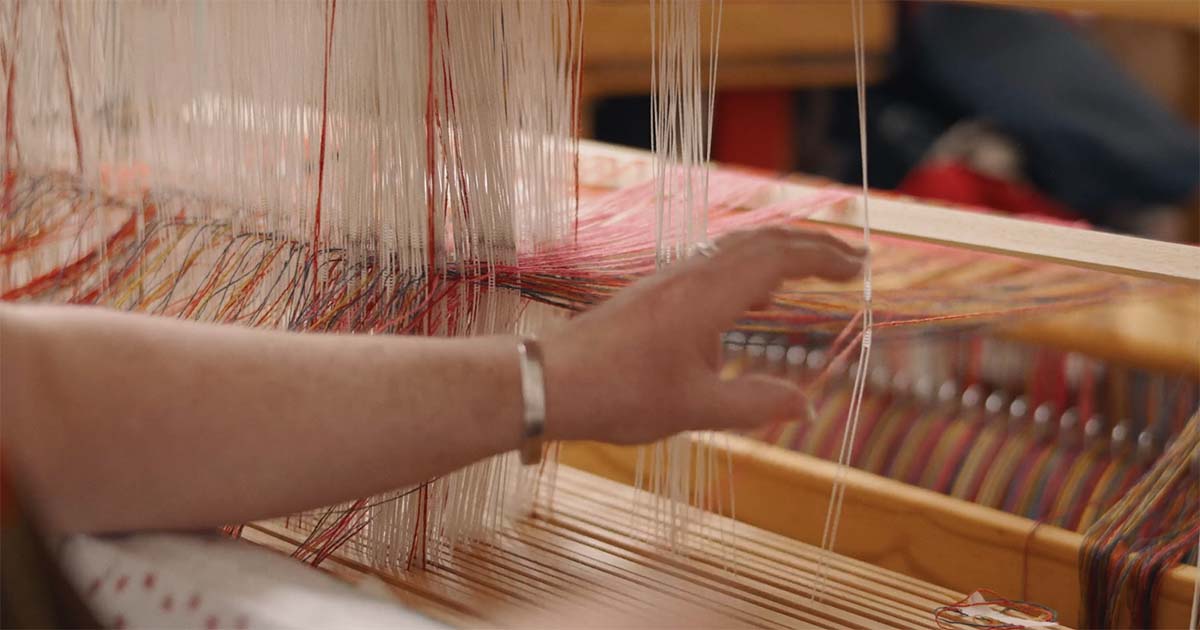
Weaver James takes a very flexible approach to scarf design especially, making the most of the versatility of the natural wools to edit and play with designs in response to customer feedback. For example, James crafted a one-of-a-kind hand woven piece in response to customers’ challenges with wearing woollen fibres – how it impacted the skin and how it moved on the body. “I often create working sample ranges to investigate structure and yarn types,” he says on his website.
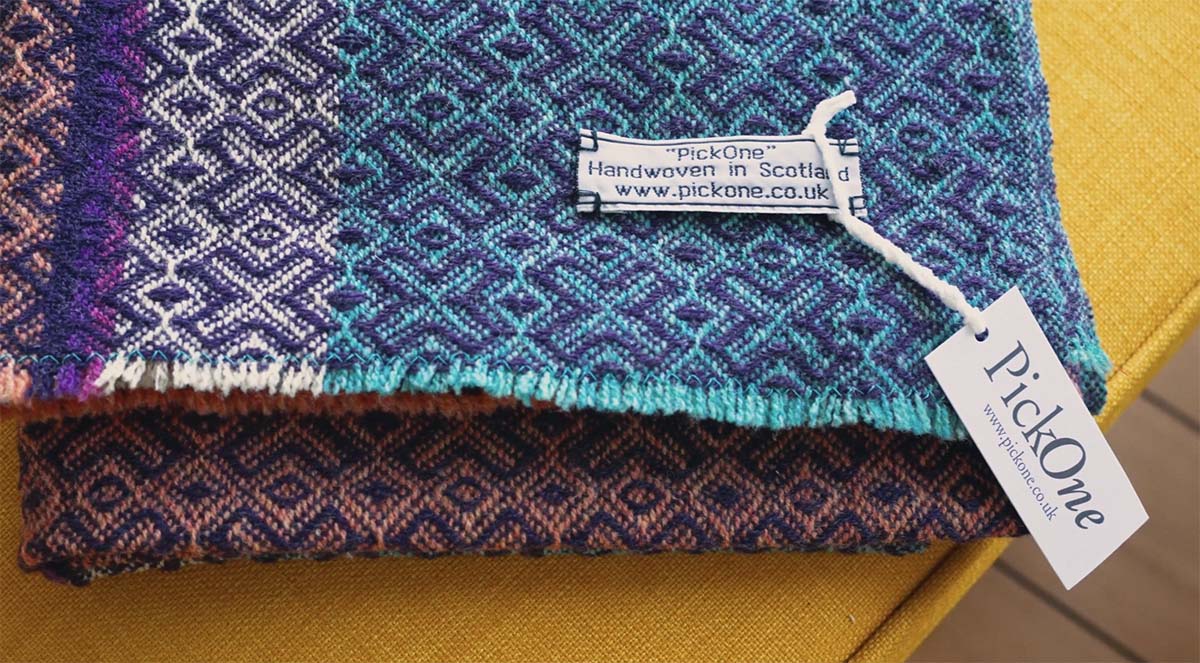
In the Lockdown Collection, James focused on a desire to reduce and use up excess material that he already had in the PickOne Studio. As part of this project, the weaver researched the Japanese techniques of Zanshi and Saori textiles.
“Zanshi is the Japanese word for leftovers,” James begins. “Zanshi cloth was originally woven from loom waste, meaning that nothing was discarded. Saori or Sakiori weaving allows a free form of cloth to be produced with little restrictions or rules.
“These cloths were originally woven using up shredded fabric torn into thin strips of fabric usually in silk or cotton, again using up what would otherwise discarded.”
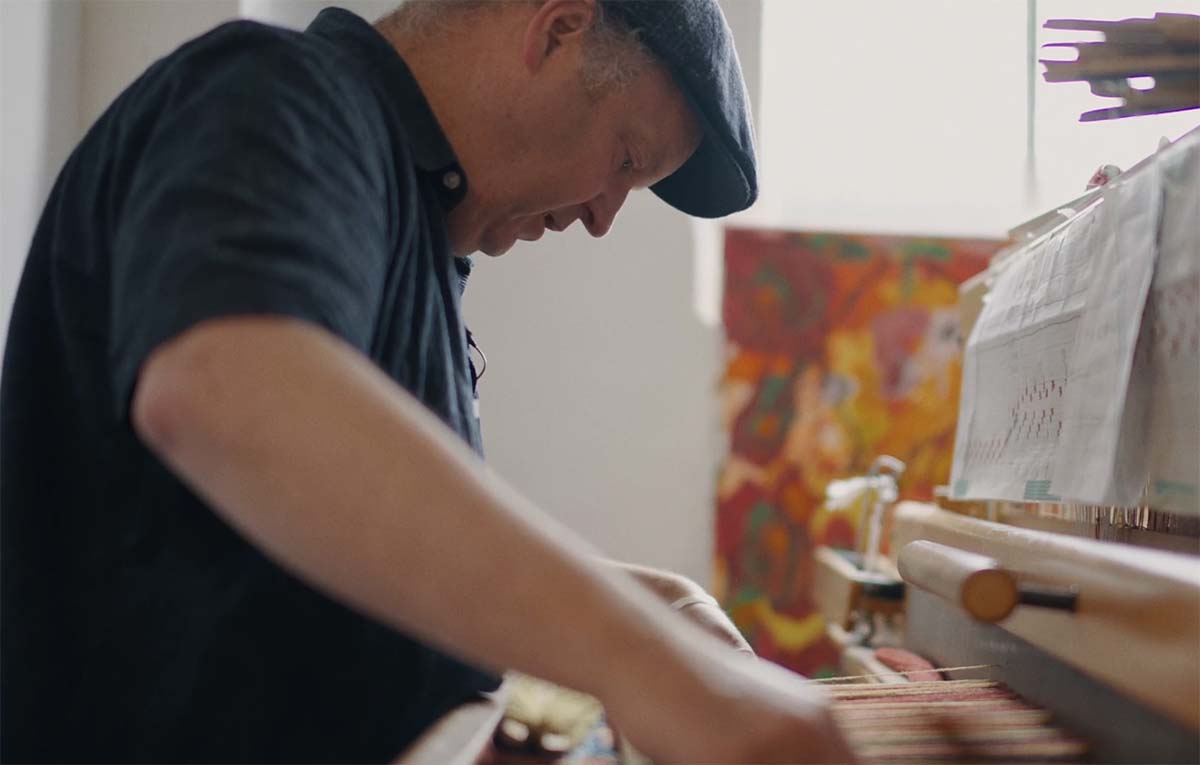
In the interest of diversification, the weaver also from time to time, will use materials like stone and metal to create art pins and other accessories. One of PickOne’s most popular items come from the Art Pins collection.
“The Art Pins as a product started off life as large drawings, produced to inspire and motivate my woven work,” James explains. “Once their usefulness has been utilised, rather than have these pieces destined for landfill, they have been repurposed into attractive art pins. No two are alike and each is a unique landscape in its own right.”
Watch the full documentary below.
VIDEO | Cro + Kow Photography & Videography, Edinburgh
For more Meet the Maker videos, try our interview with Dr Sally Gouldstone, who is the founder of meadow-grown skincare brand, Seilich.
Meet the Maker: Dr Sally Gouldstone, botanist and founder of Seilich Botanicals


